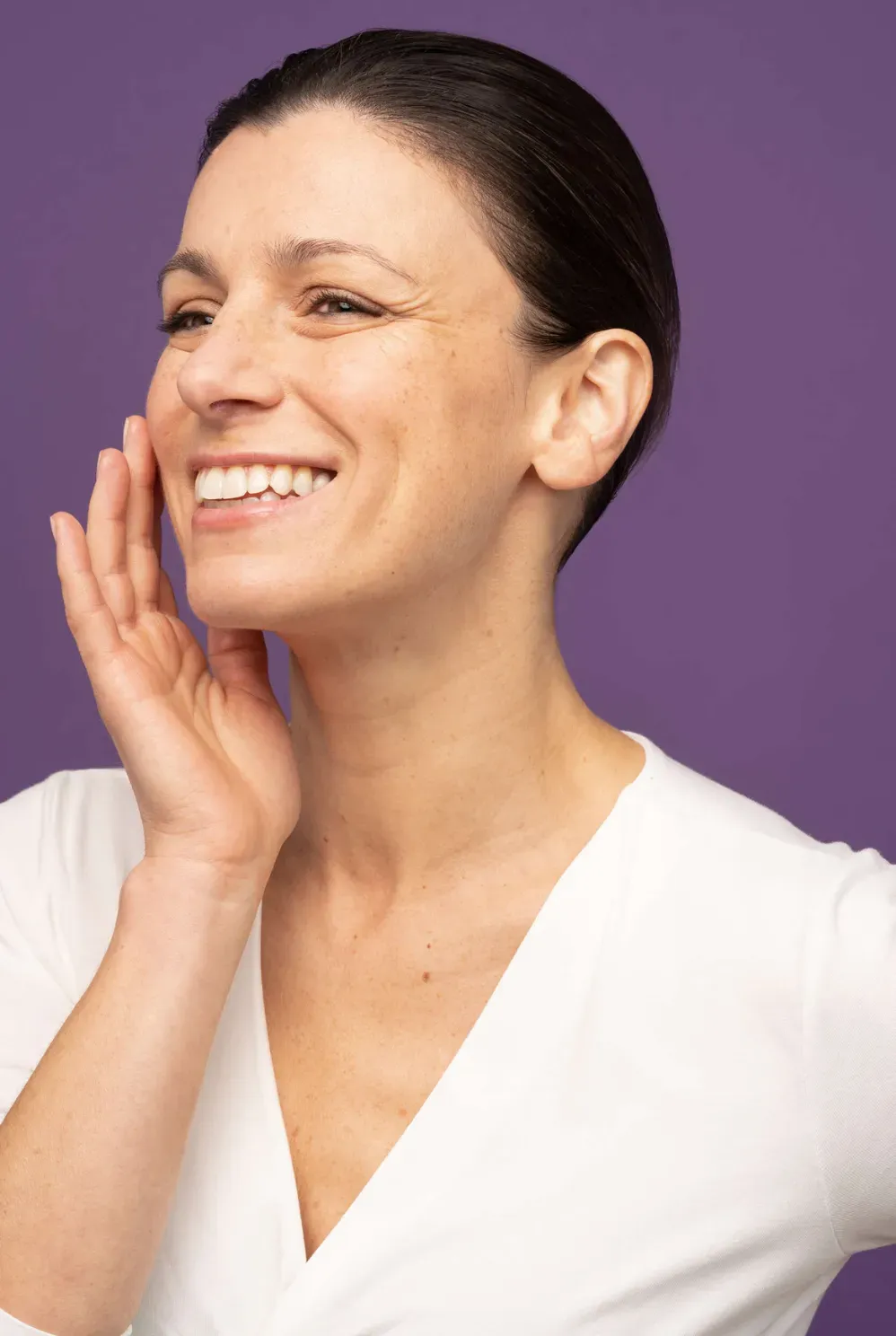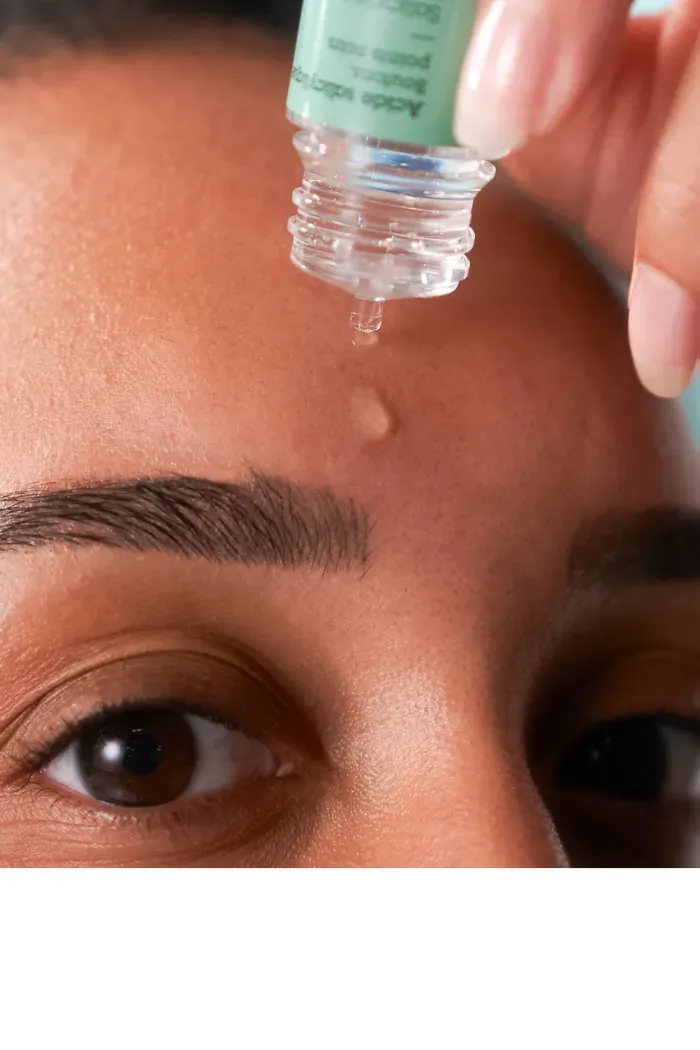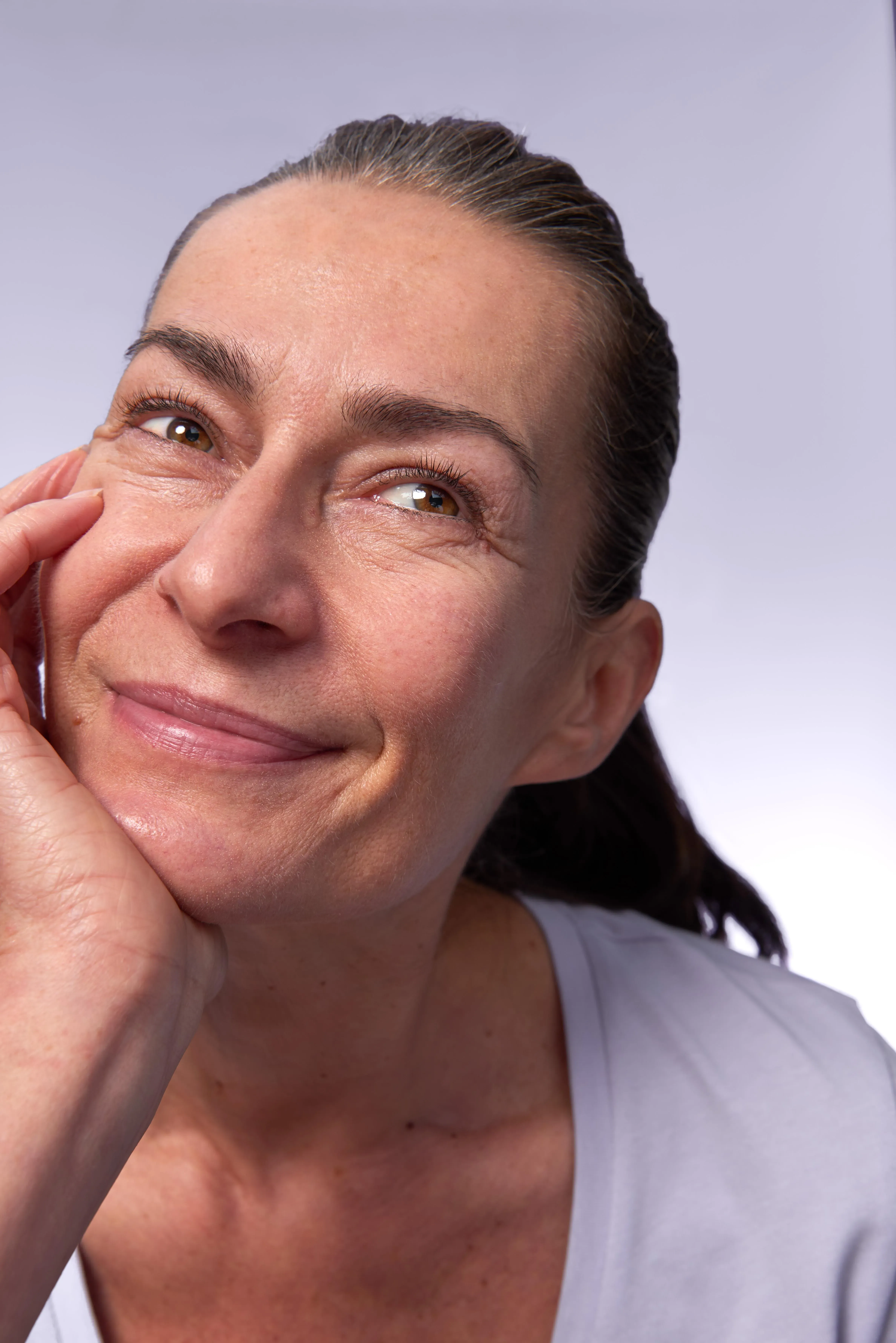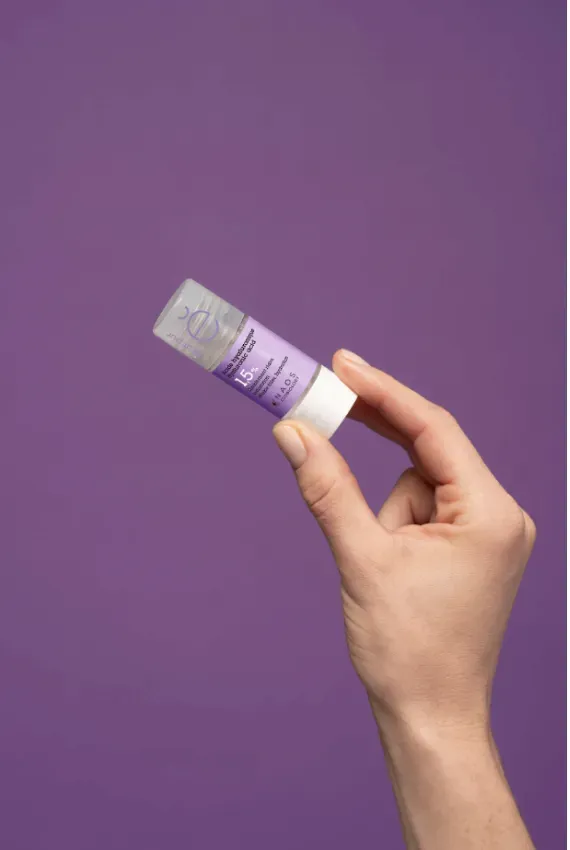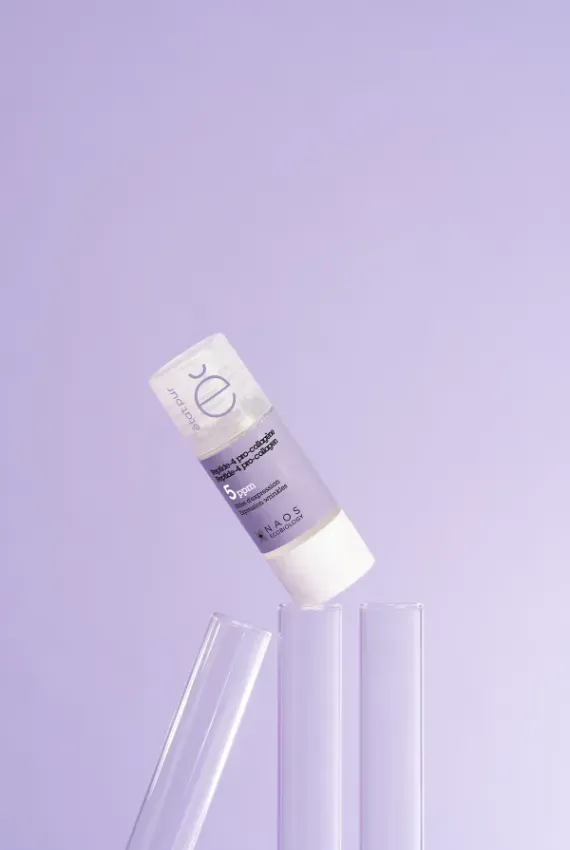Why is my skin aging?
Over time, the skin develops naturally. Age is one of the main factors in skin aging, along with sunlight.
**Genetic factors**
The rate of biological cell deterioration depends mainly on genes, and therefore varies from person to person. Some people show their first wrinkles early, while for others they appear late, and sometimes they are less deep. This biological deterioration leads to a slowdown in several mechanisms and may cause:
- **Dryness:** The activity of the sebaceous glands decreases, producing a smaller amount of sebum, which moisturizes the skin and maintains its barrier. In addition, hyaluronic acid, a molecule that stores water deeply, decreases at a rate of 1% per year starting at the age of 25, causing the skin to lose its ability to retain water. This dryness promotes the appearance of wrinkles and fine lines.
- **Dull skin:** Dead cells accumulate on the surface of the skin due to slow cell renewal, making the skin appear less smooth and less radiant.
- **Decreased elasticity:** The production of “springy” substances necessary for elasticity, such as collagen and elastin, slows down, and this worsens during menopause.
**the environment**
Environmental factors play an important role in skin aging. They amplify signs of age, especially through the action of free radicals that cause oxidative stress.
- **Free radicals**: They can result from pollution, smoking, ultraviolet rays, stress, unhealthy lifestyle... Free radicals attack DNA and proteins such as collagen, elastin, and even membrane lipids, which changes the structure of the skin and may lead to disorders. Leather.
- **Sunlight**: causes premature aging, known as photoaging. Therefore, it is important to protect from the sun from an early age to maintain the balance of the skin. UV rays penetrate deeply into the skin, damaging cell DNA in the long term and slowing cell regeneration. UVB rays affect the skin superficially, which may cause “sunburn.” The skin tries to protect itself by tanning, that is, by producing melanin. Excessive exposure without proper protection may lead to excessive production of melanin locally causing spots. Hyperpigmentation increases with age due to prolonged exposure to the sun.
- **Smoking**: It causes the production of thousands of free radicals that attack cells, which accelerates skin aging.
- **Pollution**: Polluted particles cause oxidative stress with excessive production of free radicals.
- **Stress**: stimulates the production of free radicals that are harmful to the skin.
- **Unbalanced diet**: Processed foods, rich in sugar or fat, negatively affect the skin. For example, artificial foods high in sugar promote the glycation process, which affects collagen and elastin.
- **Lack of hydration**: It is considered the main factor in skin aging. Low water consumption and non-use of moisturizing creams lead to deterioration of the skin barrier.
**What are the main signs of aging?**
The effects of aging on the skin are many, the most prominent of which is wrinkles. It is accompanied by sagging skin, which creates bags under the eyes.
Wrinkles start as expression wrinkles, then dry wrinkles, and become more pronounced with time and become deeper. The skin gradually sags, leading to a loss of firmness and density.
- With the influence of the sun, brown spots and lentigines may appear.
- Dryness increases over time, making the skin dry, uncomfortable, thinner and more fragile.
**How do we delay the appearance of these signs?**
The first thing to do is to avoid factors that accelerate skin aging. Therefore, it is important to protect the skin from the sun by wearing clothing, applying sunscreen, and reducing exposure time. It is also recommended to reduce smoking, avoid lack of sleep, and cleanse the skin morning and evening to remove pollutants. And also you should smile at life 😊.
If you really want to delay skin aging, here are some tips:
**Internal approach with collagen**
Skin health is a reflection of our lifestyle, and it also comes from the “plate”. It is recommended to eat a balanced diet rich in antioxidants found in fresh fruits and vegetables. The latter helps the skin defend itself against free radicals, preventing their harmful effect on the composition of the skin. Moreover, some elements promote collagen production such as vitamins A, C, E, zinc, sulfur, and amino acids from proteins.
It is also necessary to maintain hydration by drinking 1.5 to 2 liters of water daily to maintain deep hydration and elasticity.
In addition to a balanced diet, collagen supplements can be taken to help fight the signs of aging from within. Collagen is a fibrous protein found in all body structures, as it is a component of connective tissue. Collagen and elastin are made by fibroblasts in the skin. We find it in the skin, bones, muscles... Its main role is to make tissues strong and protect organs and other tissues. Collagen production is affected by environmental factors and age. By taking collagen supplements, we support the skin by providing it with the protein responsible for its firmness and radiance.
**External approach with active ingredients**
Collagen Stimulating Peptide-4 is the active ingredient recommended to stimulate collagen production and delay the appearance of wrinkles. Applied to the skin, the collagen produced thanks to Peptide-4 enhances skin density, makes it firmer and reduces wrinkles. It is recommended to apply it morning and evening on clean, dry skin for at least 8 weeks, before using moisturizing cream, focusing on expression wrinkles.
Dryness is one of the first consequences of skin aging and leads to sagging skin, a lack of elasticity and firmness, the appearance of wrinkles and fine lines, a feeling of discomfort and increased skin sensitivity. It is important to moisturize the skin and treat the problem from its roots. Applying a moisturizing cream appropriate to your skin type and nutrition level is essential to maintaining healthy skin.
A combination of collagen-stimulating peptide-4 and collagen supplements can help restore smooth, plump skin.
